
Ioannina: The Enchanting Jewel of Epirus
Nestled in the heart of Epirus, Ioannina is a city that blends timeless beauty with a vibrant modern culture. Surrounded by the stunning Pindus Mountains and perched beside the serene Lake Pamvotis, Ioannina offers a picturesque landscape that captivates every visitor. The city's rich history is evident in its well-preserved medieval architecture, including the imposing Ioannina Castle and the atmospheric old town. As you wander through its narrow cobblestone streets, you will discover a tapestry of Ottoman, Byzantine, and Greek influences in the historic buildings, museums, and monuments. Ioannina is not just about history; it is also a city that thrives on culture and arts. The city's museums, such as the Byzantine Museum and the Archaeological Museum, house remarkable collections that tell the story of the region's past. The silversmithing tradition in Ioannina is renowned, and visitors can explore this unique craft in local workshops and galleries. The city's vibrant university community adds a youthful energy, ensuring a lively atmosphere with plenty of cafes, bars, and restaurants to explore. Nature lovers will find Ioannina a paradise. The nearby Zagori villages offer stunning hiking trails, and the Vikos Gorge, one of the deepest gorges in the world, is a must-visit for adventure seekers. Lake Pamvotis itself is a tranquil spot for a leisurely stroll, boat ride, or even a visit to the island in the middle of the lake, which hosts charming monasteries and offers breathtaking views of the surrounding area. No matter what time of year you visit, Ioannina's blend of natural beauty, historical depth, and cultural vibrancy makes it an unforgettable destination.
Local tips in Ioannina
- Visit the island in Lake Pamvotis for a serene escape and a chance to see traditional monasteries.
- Explore the narrow streets of the old town for a glimpse of Ioannina's rich history and architecture.
- Don't miss the local silversmithing workshops to see the city's renowned craftsmanship.
- For a spectacular adventure, hike the trails in the nearby Zagori villages and visit the Vikos Gorge.
- Enjoy the local cuisine at traditional tavernas. Try specialties like 'baklava' and 'bogana' (a local meat dish).
- Check out the local festivals and cultural events that often take place in the city, especially during summer.
Ioannina: The Enchanting Jewel of Epirus
Nestled in the heart of Epirus, Ioannina is a city that blends timeless beauty with a vibrant modern culture. Surrounded by the stunning Pindus Mountains and perched beside the serene Lake Pamvotis, Ioannina offers a picturesque landscape that captivates every visitor. The city's rich history is evident in its well-preserved medieval architecture, including the imposing Ioannina Castle and the atmospheric old town. As you wander through its narrow cobblestone streets, you will discover a tapestry of Ottoman, Byzantine, and Greek influences in the historic buildings, museums, and monuments. Ioannina is not just about history; it is also a city that thrives on culture and arts. The city's museums, such as the Byzantine Museum and the Archaeological Museum, house remarkable collections that tell the story of the region's past. The silversmithing tradition in Ioannina is renowned, and visitors can explore this unique craft in local workshops and galleries. The city's vibrant university community adds a youthful energy, ensuring a lively atmosphere with plenty of cafes, bars, and restaurants to explore. Nature lovers will find Ioannina a paradise. The nearby Zagori villages offer stunning hiking trails, and the Vikos Gorge, one of the deepest gorges in the world, is a must-visit for adventure seekers. Lake Pamvotis itself is a tranquil spot for a leisurely stroll, boat ride, or even a visit to the island in the middle of the lake, which hosts charming monasteries and offers breathtaking views of the surrounding area. No matter what time of year you visit, Ioannina's blend of natural beauty, historical depth, and cultural vibrancy makes it an unforgettable destination.
When is the best time to go to Ioannina?
Iconic landmarks you can’t miss
Castle of Ioannina
Explore Ioannina Castle, Greece's oldest Byzantine fortress, where history, culture, and legends come to life on the shores of Lake Pamvotis.
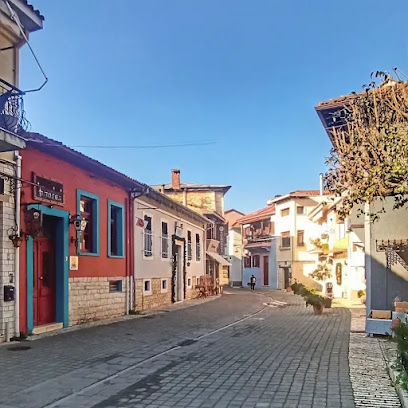
Ali Pasha and Revolutionary Period Museum
Explore the life of Ali Pasha and the Greek Revolution at this museum on the car-free Ioannina Island, a short ferry ride from Ioannina.
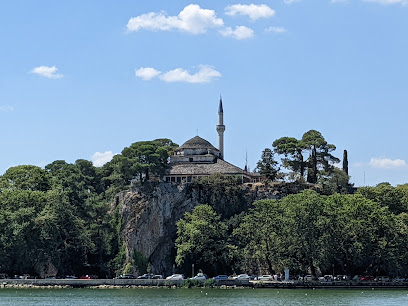
Μουσείο Ελληνικής Ιστορίας Παύλου Βρέλλη
Experience Greek history come to life at the Pavlos Vrellis Museum, featuring captivating wax figures in realistic historical settings near Ioannina.
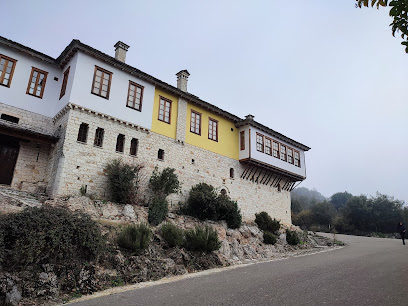
Perama Cave
Discover a breathtaking subterranean world at Perama Cave near Ioannina, Greece, featuring stunning stalactites, stalagmites, and ancient fossils.
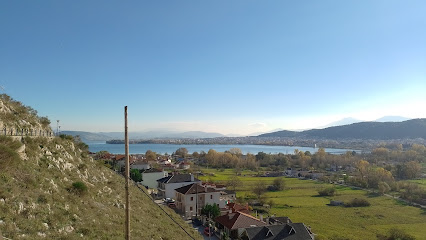
Frontzou Politia Restaurant
Experience authentic Greek cuisine with breathtaking views at Frontzou Politia Restaurant in Ioannina. A culinary gem on Agia Triada Hill.
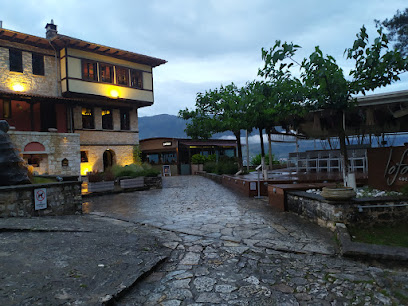
National Park of Tzoumerka, Peristeri & Arachthos Gorge
Discover a hidden gem in Greece: explore mountains, gorges, and traditional villages in the National Park of Tzoumerka, Peristeri & Arachthos Gorge.
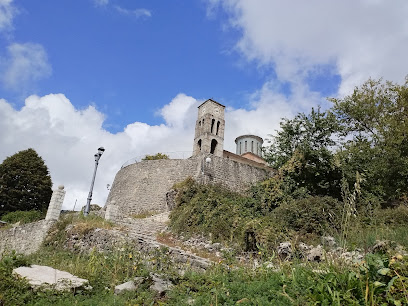
Archaeological Site of Dodoni
Discover Dodoni, Greece: An ancient oracle site with a magnificent Hellenistic theater and ruins dating back to the 2nd millennium BCE.
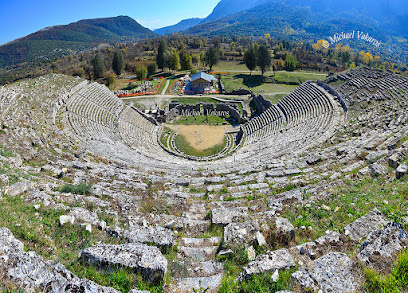
Frontzu Politia - Hotel
Experience history and hospitality at Frontzu Politia Hotel in Ioannina, offering stunning views and traditional charm for an unforgettable stay.
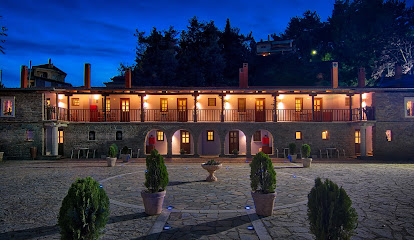
Litharitsia park
Discover panoramic views, art, and history in Ioannina's charming Litharitsia Park, a green oasis in the heart of the city.
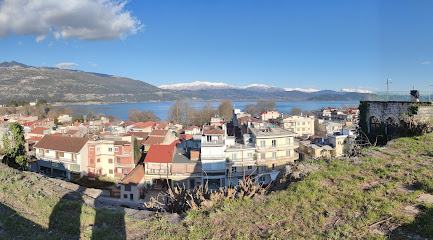
The Clock Tower of Ioannina
Discover Ioannina's iconic Clock Tower: a blend of neoclassical and oriental architecture, steeped in history and offering stunning city views.
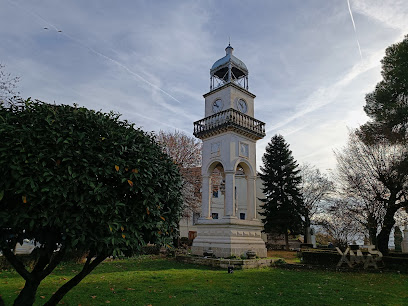
Silversmithing Museum
Discover the exquisite artistry and rich history of Epirote silversmithing at Ioannina's captivating Silversmithing Museum, nestled in the historic Its Kale fortress.
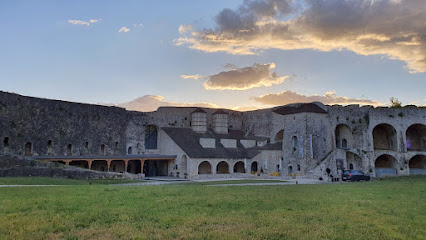
Chevalier
Experience Ioannina's vibrant nightlife at Chevalier, a stylish bar offering creative cocktails and a welcoming atmosphere in the heart of the city.
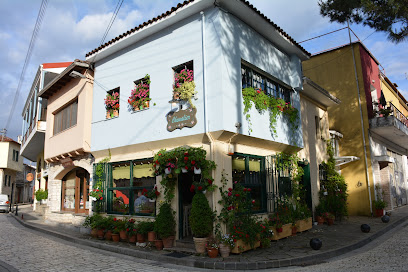
Omilos
Enjoy Greek & Mediterranean cuisine with stunning lake views at Omilos, a family-friendly restaurant and bar in Ioannina. Open late on weekends!
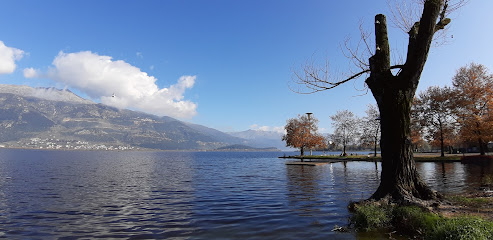
Its Kale
Experience history and local flavors at Its Kale, a charming cafe nestled within Ioannina's ancient castle walls.
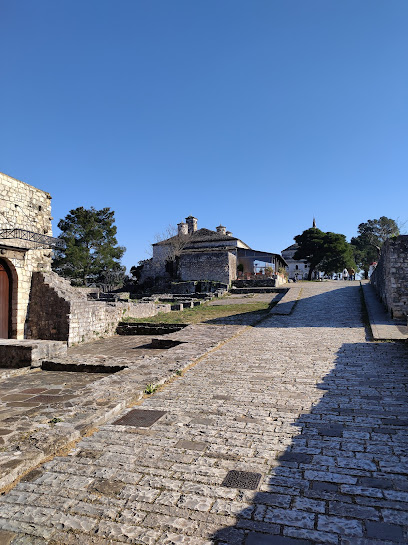
Lake Pamvotida
Discover Lake Pamvotida: A serene escape with rich history, stunning nature, and the unique island of Ioannina.
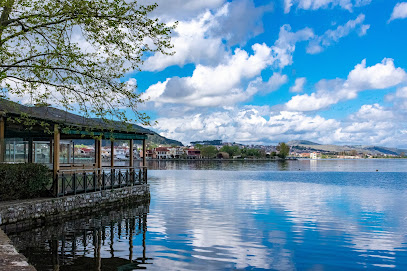
Unmissable attractions to see
Αcheron Springs
Experience the natural beauty and mythical charm of Acheron Springs, a stunning preserve in Greece's breathtaking landscape.
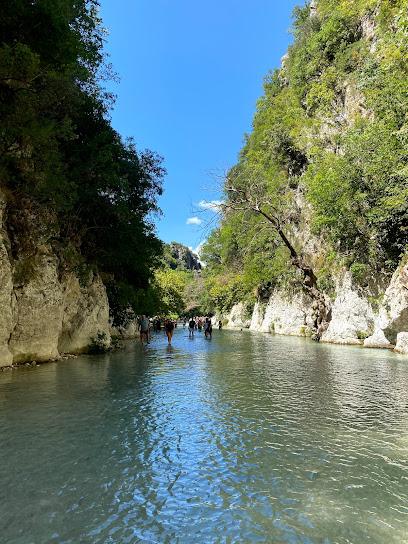
Castle of Ioannina
Explore the Castle of Ioannina, a historical gem in Greece that offers stunning views and rich cultural heritage in a captivating setting.
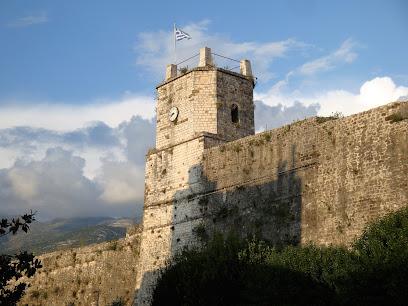
Ali Pasha and Revolutionary Period Museum
Explore the captivating history of Greece at the Ali Pasha and Revolutionary Period Museum on Ioannina Island, where stories of the past come to life.
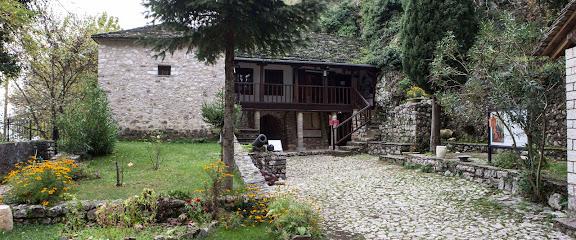
Metsovo Square
Explore Metsovo Square, a charming cultural hub in Greece, filled with local crafts, exquisite cuisine, and stunning mountain views.
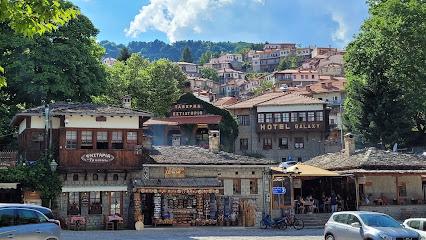
Μουσείο Ελληνικής Ιστορίας Παύλου Βρέλλη
Immerse yourself in Greece's captivating past at the Vrellis Greek History Wax Museum in Mpizani, where history comes alive through stunning wax figures.
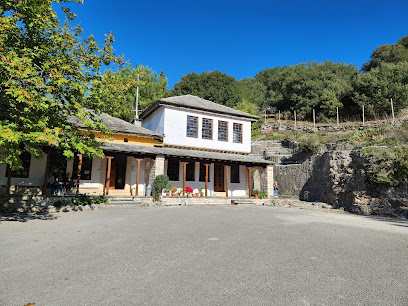
Perama Cave
Discover the enchanting beauty of Perama Cave, a stunning natural wonder filled with fascinating stalactites and stalagmites, rich in history and adventure.
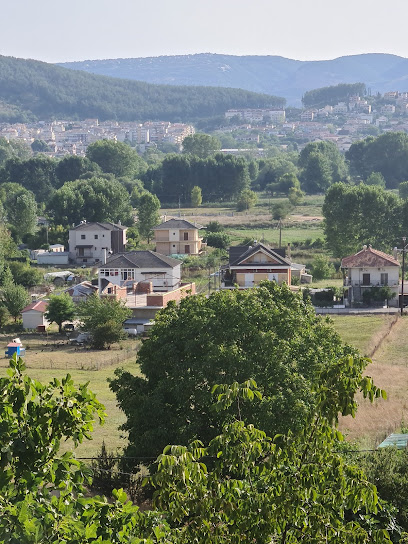
Vikos Gorge
Experience the breathtaking beauty of Vikos Gorge, a natural wonder in Greece, offering stunning landscapes, rich history, and endless adventure opportunities.
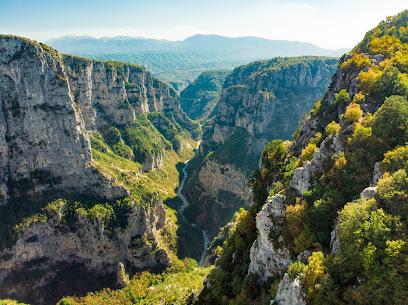
Papingo Rock Pools
Experience the serene beauty of Papingo Rock Pools, a hidden gem in Greece, perfect for swimming, hiking, and immersing in nature's tranquility.
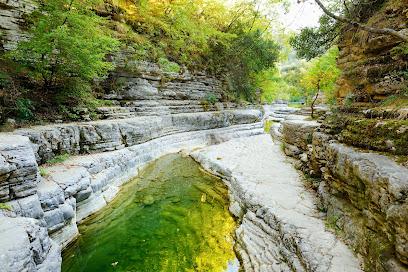
Stone bridge Konitsa
Discover the breathtaking Stone Bridge of Konitsa, an architectural marvel set against the stunning backdrop of Greece's Pindus mountains.
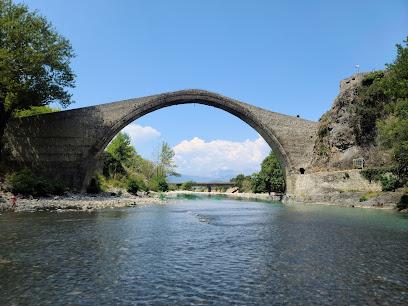
Ic Kale Acropolis of Ioannina
Discover the historic Ic Kale Acropolis in Ioannina, a breathtaking site that offers stunning views and rich insights into Greece's past.
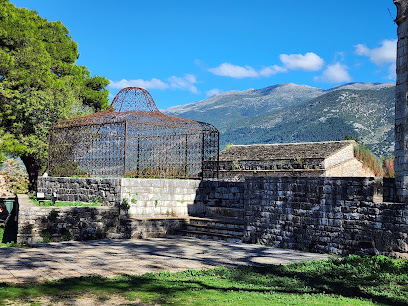
Oxya Viewpoint
Discover the breathtaking vistas of Oxya Viewpoint in Vradeto, a must-visit scenic spot for nature lovers and photographers.
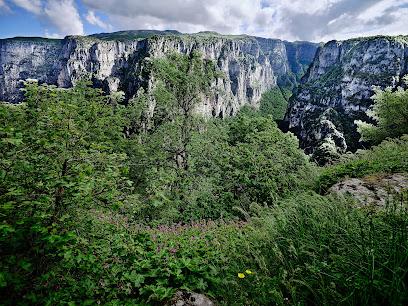
Archaeological Site of Dodoni
Explore the Archaeological Site of Dodoni, Greece, home to ancient ruins and rich history that captivate every visitor's imagination.
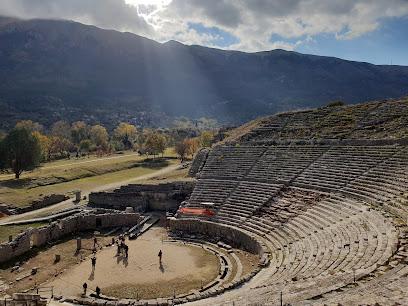
Vikos National Park
Explore Vikos National Park, a UNESCO World Heritage Site, where breathtaking landscapes and outdoor adventures await in Greece's natural paradise.
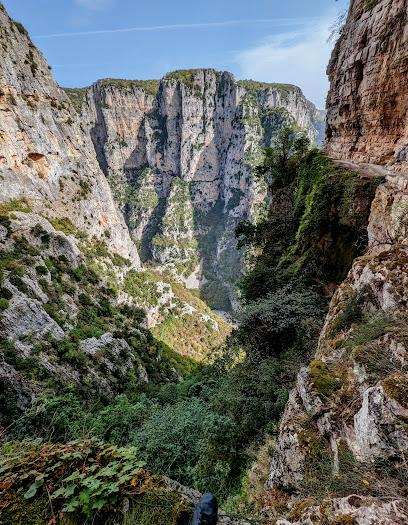
Klidonia ancient stone bridge
Discover the timeless beauty of Klidonia Ancient Stone Bridge, where history meets breathtaking nature in Greece's stunning landscapes.
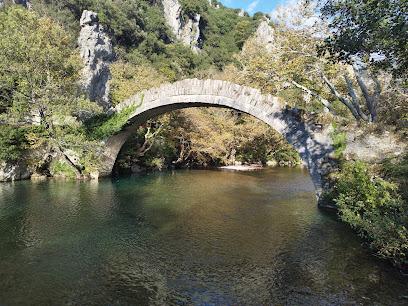
Clock Tower of Ioannina
Discover the Clock Tower of Ioannina, an architectural marvel and historical landmark offering stunning views and a glimpse into Greece's rich heritage.
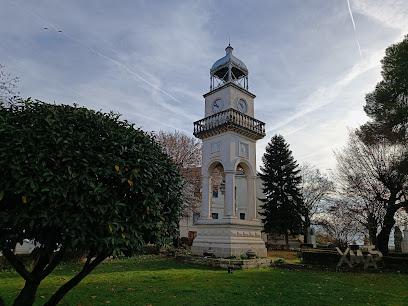
Essential places to dine
Balsamico
Experience the flavors of Greece at Balsamico in Ioannina - where traditional cuisine meets modern deli delights.
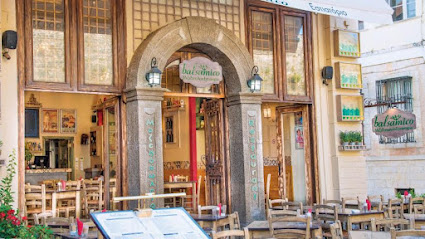
Metsovitiki Folia
Discover authentic Greek barbecue at Metsovitiki Folia in Ioannina - where flavor meets tradition in every bite.
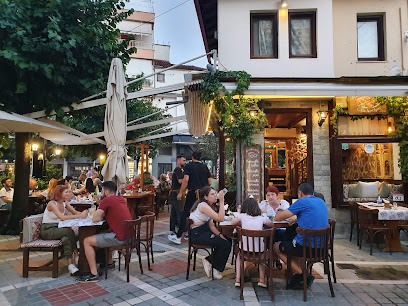
Frontzou Politia Restaurant
Discover the exquisite flavors of traditional Greek cuisine at Frontzou Politia Restaurant in Ioannina with stunning hilltop views.
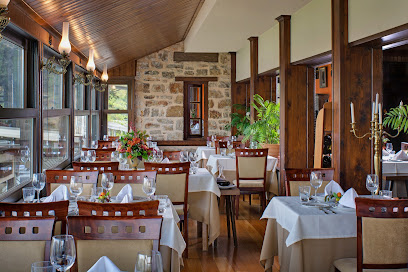
SEIRIOS KOUZINA
Experience the rich flavors of Greece at Seirios Kouzina - A must-visit restaurant in Ioannina offering authentic dishes and warm hospitality.
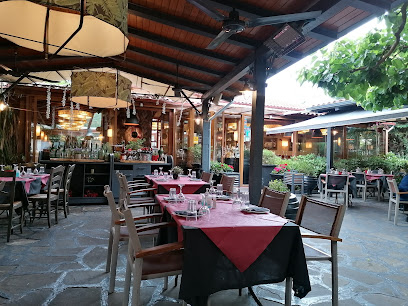
Bite Bite
Discover authentic Greek flavors at Bite Bite in Ioannina—where every dish tells a story.
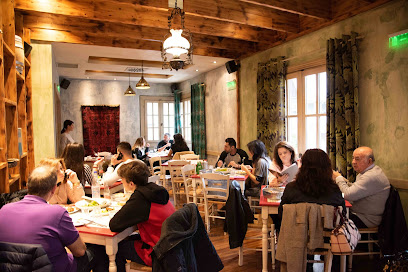
Spitaki με θέα
Discover Spitaki με θέα: A charming coffee shop in Ioannina offering stunning views and a diverse menu of drinks and light bites.
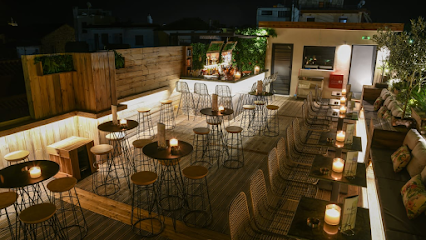
Fysa Roufa
Discover authentic Greek cuisine at Fysa Roufa in Ioannina - where tradition meets taste in every delightful dish.
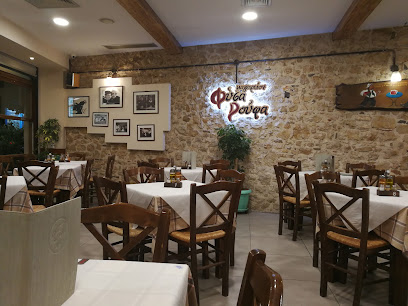
Miam Miam Το Μακαροναδικο
Experience authentic Italian flavors at Miam Miam Το Μακαροναδικο in Ioannina - where every pasta dish tells a story.
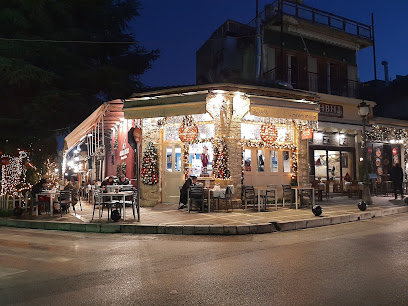
PRESVEIA Restaurant Meze
Experience authentic Greek cuisine at Presveia Restaurant Meze in Ioannina - where tradition meets taste in every bite.
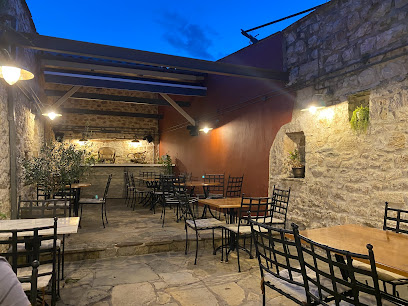
MAISON Gourmet · Coffee · Bar
Discover the charm of MAISON Gourmet in Ioannina – where exceptional coffee meets delightful breakfast options in an inviting atmosphere.
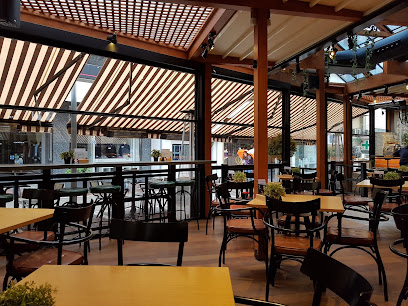
Μυσταγωγία
Savor traditional Greek cuisine at Μυσταγωγία in Ioannina – where every dish tells a story.
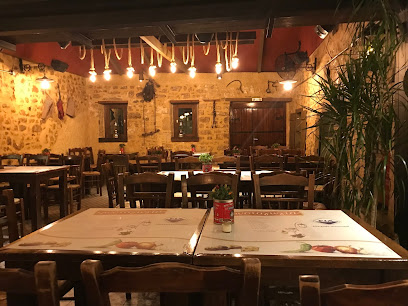
Stoa Louli
Discover authentic Greek flavors at Stoa Louli in Ioannina—where tradition meets contemporary dining in a charming atmosphere.
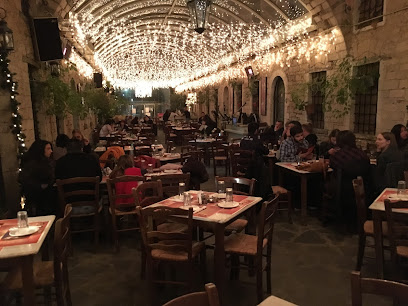
ΦΙΛΙΠΠΑΣ GASTRONOMY ΜΙΚΕ
Experience authentic Greek barbecue cuisine and lively dinner theater at ΦΙΛΙΠΠΑΣ GASTRONOMY ΜΙΚΕ in Ioannina.
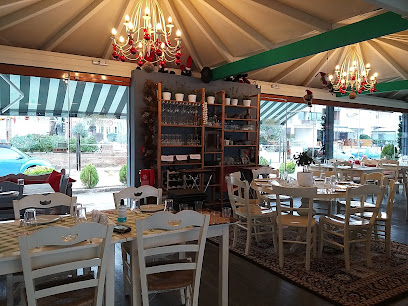
Rakoumel
Experience authentic Greek cuisine at Rakoumel in Ioannina with delectable small plates crafted from fresh local ingredients.
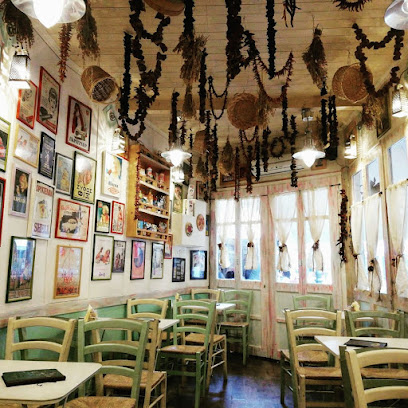
IL PAZZO
Discover authentic Italian flavors at Il Pazzo in Ioannina - where delicious pizzas meet a vibrant atmosphere.
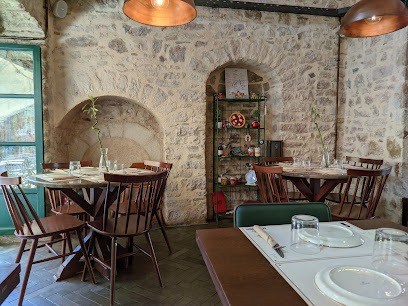
Markets, malls and hidden boutiques
Public + home Ιωαννίνων
Explore Public + Home in Ioannina for a unique shopping experience featuring electronics, books, home goods, and toys in a vibrant setting.
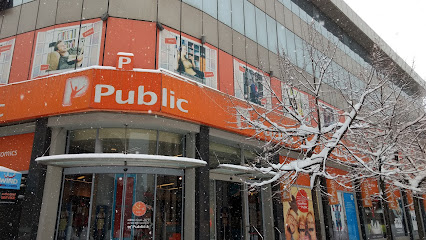
ZARA
Discover the latest trends at ZARA in Ioannina, where contemporary style meets affordability in a fashionable shopping experience.
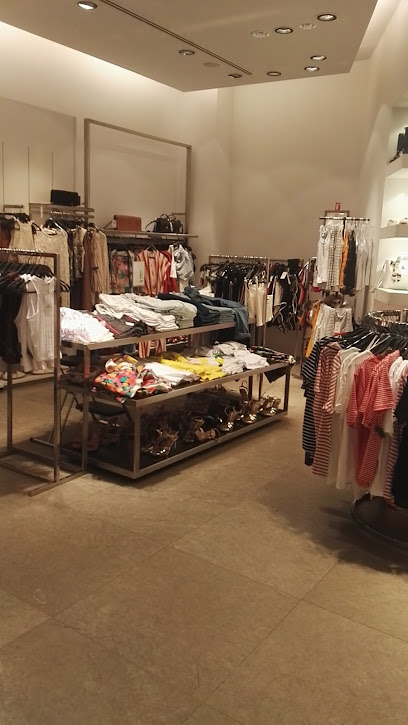
H&M
Explore stylish and affordable men's clothing at H&M in Ioannina, where fashion meets sustainability in a vibrant shopping experience.
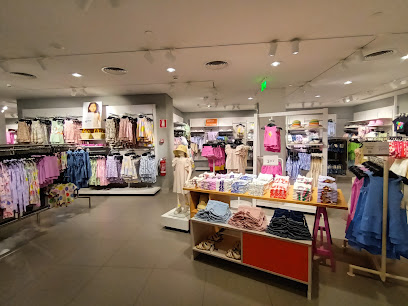
Woman Sense Boutique
Explore Woman Sense Boutique for chic women's clothing and personalized shopping in the heart of Ioannina, where style meets quality.
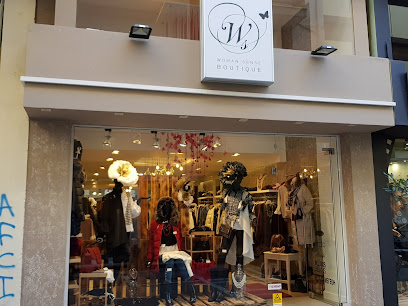
Zara Men
Explore stylish men's fashion at Zara Men in Ioannina, where contemporary design meets quality at moderate prices.
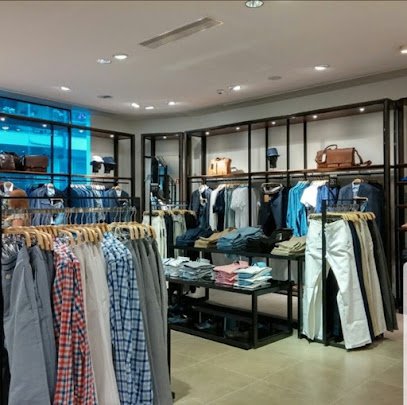
Bershka
Explore contemporary fashion at Bershka in Ioannina, offering stylish clothing and accessories for all your wardrobe needs.
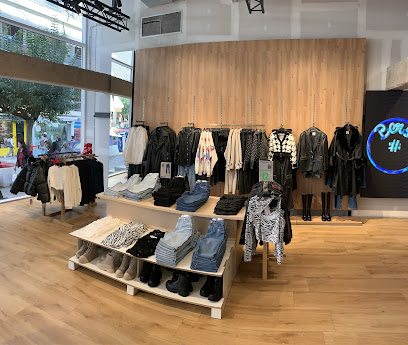
Pull & Bear
Explore the latest fashion trends at Pull & Bear in Ioannina, where stylish clothing meets youthful spirit for both men and women.

SEPHORA IOANNINA
Explore the ultimate beauty destination in Ioannina, offering a vast selection of cosmetics, skincare, and fragrances to enhance your style.
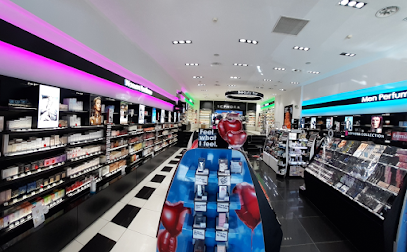
ΚΟΤΣΩΝΗΣ ΚΟΣΜΗΜΑΤΑ
Discover exquisite jewelry and unique gifts at ΚΟΤΣΩΝΗΣ ΚΟΣΜΗΜΑΤΑ in Ioannina, where elegance and craftsmanship shine.
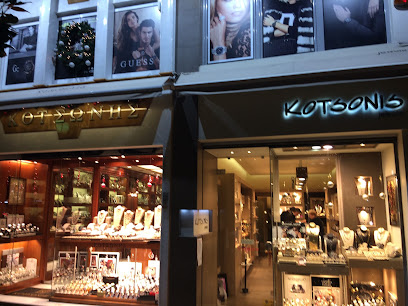
IQOS BOUTIQUE STORE ΙΩΑΝΝΙΝΑ
Discover innovative tobacco alternatives at IQOS Boutique Store Ioannina, where modernity meets tradition in a premium shopping experience.
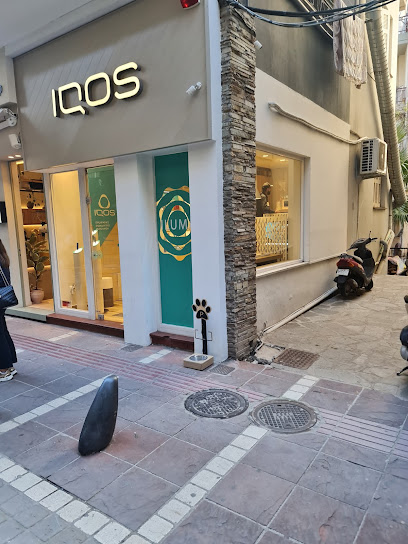
Nova Store Ioannina
Explore Nova Store Ioannina for unique local crafts, delicious specialties, and a delightful shopping experience in the heart of Greece.
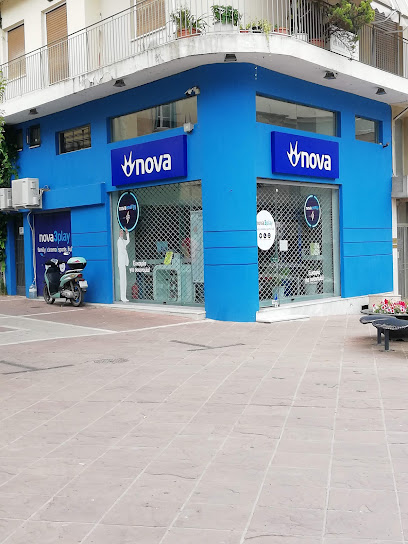
DION SHOP
Explore the vibrant fashion scene at Dion Shop in Ioannina, your ultimate destination for trendy clothing, bags, and accessories.
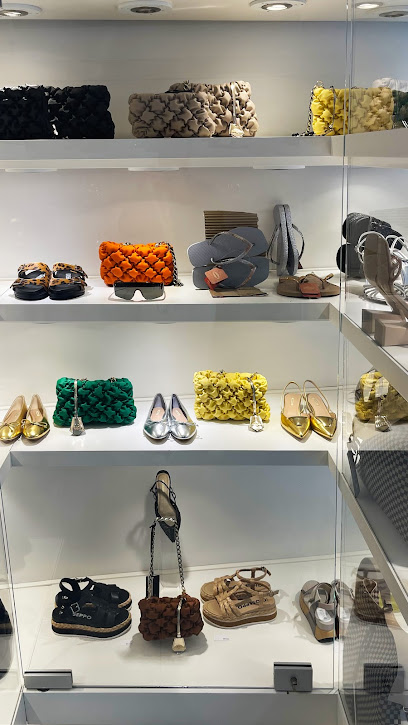
Stoa Orfea
Explore Stoa Orfea in Ioannina, a shopping haven blending modern retail, delightful dining, and vibrant entertainment for all.
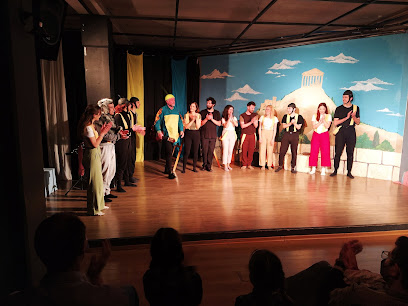
PAGOURI est. in Ioannina. Handmade gifts and souvenirs.
Explore PAGOURI in Ioannina for unique handmade gifts and souvenirs, embodying the essence of Greek craftsmanship.
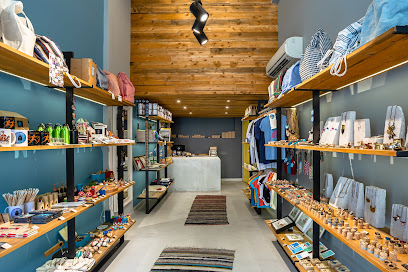
Hall Of Brands
Discover top-tier sporting goods and apparel in Ioannina's Hall of Brands, your one-stop shop for all things sports-related.
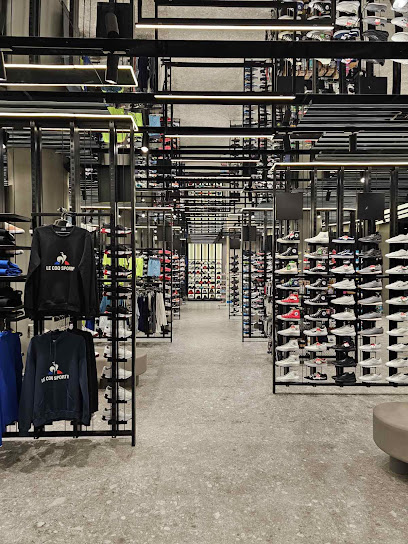
Essential bars & hidden hideouts
Spitaki με θέα
Discover the perfect blend of delicious cuisine and stunning views at Spitaki με θέα in Ioannina, Greece.
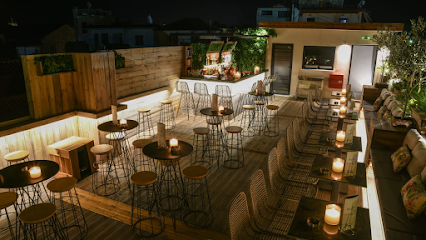
Chevalier
Experience the vibrant nightlife of Ioannina at Chevalier, where exceptional drinks meet a welcoming atmosphere.
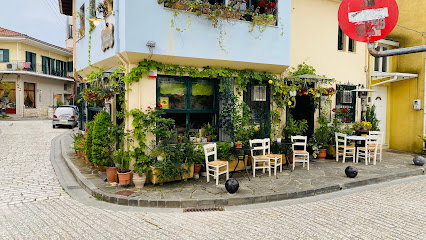
Skala
Experience the vibrant atmosphere of Skala, a premier bar in Ioannina, known for its outstanding drinks and friendly service.
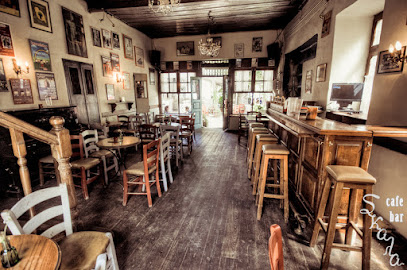
Equus
Discover Equus in Ioannina, where modern dining meets traditional Greek hospitality, offering a taste of local flavors in a vibrant atmosphere.
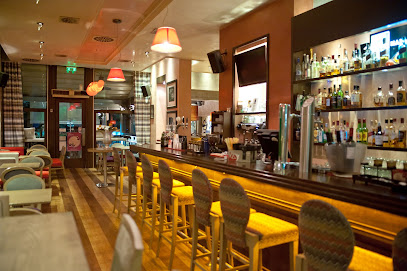
OPEN BAR
Discover the vibrant atmosphere at OPEN BAR in Ioannina, where drinks, dining, and local culture come together to create unforgettable experiences.
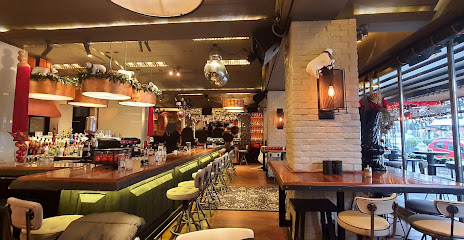
Route 66 Bar
Discover the lively spirit of Ioannina at Route 66 Bar, where vibrant nightlife meets exceptional drink experiences.
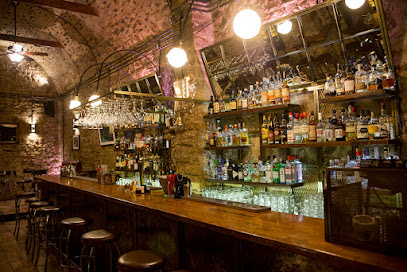
Trypokárydos
Experience the vibrant nightlife of Ioannina at Trypokárydos, where innovative cocktails and friendly service create unforgettable memories.
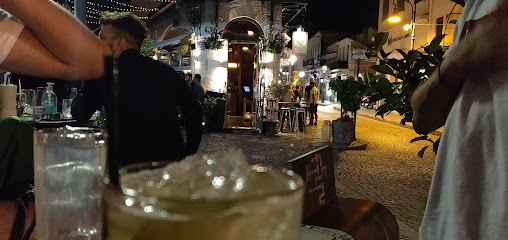
Refren Music Bar
Discover the electrifying nightlife of Ioannina at Refren Music Bar, where music, drinks, and dancing create an unforgettable experience.
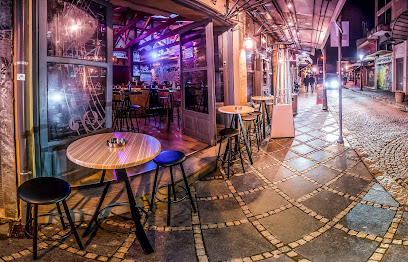
Spitaki
Experience Ioannina's vibrant nightlife at Spitaki Cocktail Bar, where innovative cocktails and a lively ambiance await you.
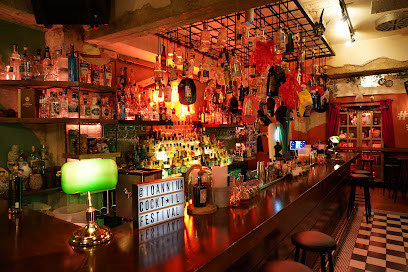
Circus
Experience the vibrant nightlife of Ioannina at Circus, where expertly crafted cocktails meet a lively atmosphere for unforgettable evenings.
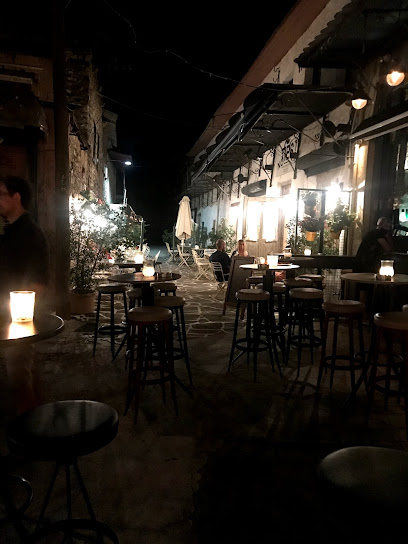
Beatnik
Experience the vibrant nightlife at Beatnik, Ioannina's premier bar and music haven, where every night is a celebration of sound and community.
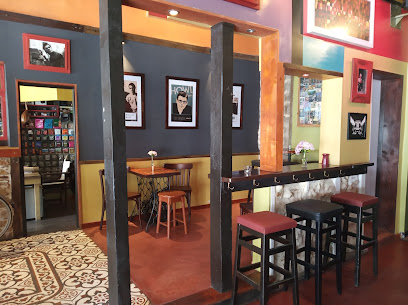
Blue Gin
Discover Blue Gin, Ioannina's top cocktail bar, where innovative drinks and a vibrant atmosphere come together for an unforgettable nightlife experience.
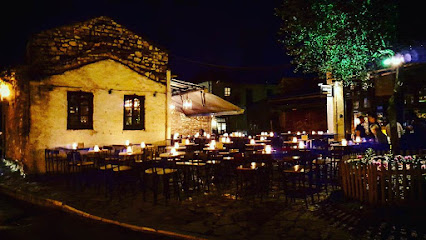
Brigada of Domovoi
Experience the lively atmosphere and exquisite drinks at Brigada of Domovoi, Ioannina's premier bar for nightlife and socializing.
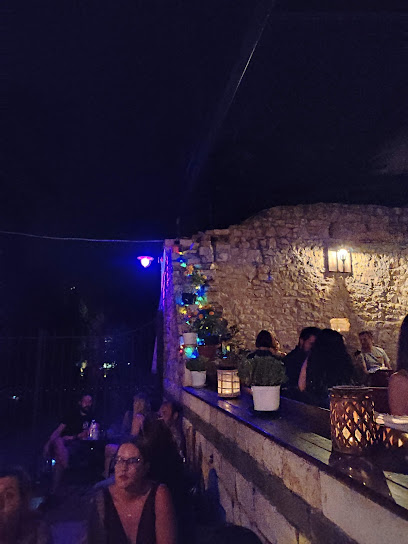
American Bar
Experience Ioannina's vibrant nightlife at American Bar, where delicious drinks and a lively atmosphere await you.
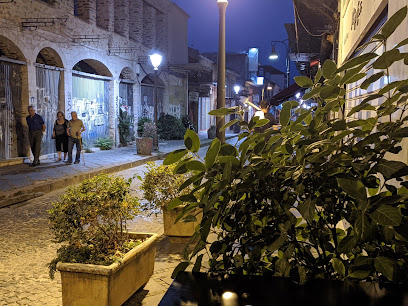
Travel experiences inspired by this city
Explore more travel diariesLocal Phrases
-
- HelloΓεια σας
[Yia sas] - GoodbyeΑντίο
[Adio] - YesΝαι
[Ne] - NoΌχι
[Ohi] - Please/You're welcomeΠαρακαλώ
[Parakalo] - Thank youΕυχαριστώ
[Efharisto] - Excuse me/SorryΣυγνώμη
[Signomi] - How are you?Πώς είστε;
[Pos iste?] - Fine. And you?Καλά. Εσείς;
[Kala. Esis?] - Do you speak English?Μιλάτε Αγγλικά;
[Milate Agglika?] - I don't understandΔεν καταλαβαίνω
[Den katalaveno]
- HelloΓεια σας
-
- I'd like to see the menu, pleaseΘα ήθελα να δω το μενού, παρακαλώ
[Tha ithela na do to menou, parakalo] - I don't eat meatΔεν τρώω κρέας
[Den troo kreas] - Cheers!Στην υγειά σας!
[Stin igia sas] - I would like to pay, pleaseΘα ήθελα να πληρώσω, παρακαλώ
[Tha ithela na plirosso, parakalo]
- I'd like to see the menu, pleaseΘα ήθελα να δω το μενού, παρακαλώ
-
- Help!Βοήθεια!
[Voiθia!] - Go away!Φύγε!
[Fiγe!] - Call the Police!Καλέστε την Αστυνομία!
[Kaleste tin Astinomia!] - Call a doctor!Καλέστε ένα γιατρό!
[Kaleste ena giatro!] - I'm lostΈχω χαθεί
[Eho hathi] - I'm illΕίμαι άρρωστος
[Emai arrostos]
- Help!Βοήθεια!
-
- I'd like to buy...Θα ήθελα να αγοράσω...
[Tha ithela na agorasoo...] - I'm just lookingΑπλά κοιτάω
[Apla kito] - How much is it?Πόσο κοστίζει;
[Poso kostizi?] - That's too expensiveΑυτό είναι πολύ ακριβό
[Afto ine poli akrivo] - Can you lower the price?Μπορείτε να χαμηλώσετε την τιμή;
[Borite na hamilosete tin timi?]
- I'd like to buy...Θα ήθελα να αγοράσω...
-
- What time is it?Τι ώρα είναι;
[Ti ora ine?] - It's one o'clockΕίναι μία ώρα
[Ine mia ora] - Half past (10)Μισή (10)
[Misi (10)] - MorningΠρωί
[Proi] - AfternoonΑπόγευμα
[Apoyevma] - EveningΒράδυ
[Vradi] - YesterdayΧθες
[Hthes] - TodayΣήμερα
[Simera] - TomorrowΑύριο
[Avrio] - 1Ένα
[Ena] - 2Δύο
[Dio] - 3Τρία
[Tria] - 4Τέσσερα
[Tessera] - 5Πέντε
[Pente] - 6Έξι
[Exi] - 7Εφτά
[Efta] - 8Οκτώ
[Okto] - 9Εννιά
[Ennia] - 10Δέκα
[Deka]
- What time is it?Τι ώρα είναι;
-
- Where's a/the...?Πού είναι ένα/το...;
[Pou ine ena/to...?] - What's the address?Ποια είναι η διεύθυνση;
[Pia ine i diefthinsi?] - Can you show me (on the map)?Μπορείτε να μου δείξετε (στο χάρτη);
[Borite na mou dixete (sto charti)?] - When's the next (bus)?Πότε είναι το επόμενο (λεωφορείο);
[Pote ine to epomeno (leoforeio)?] - A ticket (to ....)Ένα εισιτήριο (για ....)
[Ena isitirio (gia ....)]
- Where's a/the...?Πού είναι ένα/το...;
History of Ioannina
-
Ioannina, the capital of the Epirus region in northwestern Greece, was founded in the 6th century AD by the Byzantine Emperor Justinian I. The city’s strategic location near Lake Pamvotis made it an important center for trade and defense throughout its early history.
-
In the early 13th century, Ioannina became part of the Despotate of Epirus, a Byzantine successor state. Under the rule of Michael I Komnenos Doukas and his successors, Ioannina experienced significant growth and development, becoming a center of culture and learning.
-
Ioannina fell to the Ottoman Turks in 1430 and remained under Ottoman control for nearly five centuries. During this period, the city became a melting pot of cultures and religions, including Greeks, Jews, and Muslims. Notable landmarks from this era include the Aslan Pasha Mosque and the Fethiye Mosque.
-
The late 18th and early 19th centuries saw Ioannina flourish under the semi-autonomous rule of Ali Pasha of Tepelena. Ali Pasha, known for his ambitious and ruthless policies, transformed Ioannina into a major political and economic hub. His residence, the Ali Pasha’s House, is now a museum showcasing this period.
-
Ioannina played a significant role during the Greek War of Independence (1821-1830). Although the city did not initially join the revolt, it became a focal point of resistance against Ottoman rule. Ioannina was finally incorporated into the modern Greek state in 1913 after the Balkan Wars.
-
The 20th century brought significant changes to Ioannina, including industrialization and modernization. During World War II, Ioannina was occupied by Italian and later German forces. The Jewish community, which had thrived for centuries, was decimated during the Holocaust.
-
Today, Ioannina is renowned for its rich cultural heritage. The city is home to several museums, including the Archaeological Museum of Ioannina and the Byzantine Museum. Its vibrant traditions, such as the annual Ioannina Festival, celebrate the diverse history and cultural mosaic of the region.
Ioannina Essentials
-
Ioannina is well-connected to various parts of Greece. The nearest airport is Ioannina National Airport (IOA), which has regular flights from Athens. From the airport, you can take a taxi or rent a car to reach the city center. Alternatively, you can travel by bus from major Greek cities like Athens and Thessaloniki; the KTEL bus service offers comfortable and frequent routes. For those who prefer driving, Ioannina is accessible via the Egnatia Odos motorway.
-
Ioannina is a compact city, and many of its attractions are within walking distance. Public buses operated by Astiko KTEL Ioanninon are available for getting around the city and its suburbs. Taxis are also plentiful and relatively inexpensive. For more flexibility, consider renting a car, especially if you plan to explore the surrounding region, including the beautiful Zagori villages.
-
The official currency in Greece is the Euro (EUR). Credit and debit cards are widely accepted in Ioannina, including in hotels, restaurants, and shops. However, it is advisable to carry some cash, especially when visiting smaller establishments or local markets. ATMs are readily available throughout the city for cash withdrawals.
-
Ioannina is generally a safe city for tourists. However, as with any travel destination, it is important to take standard precautions. Avoid walking alone at night in unfamiliar areas and keep your belongings secure in crowded places. While Ioannina does not have specific high-crime areas targeting tourists, it is always best to stay vigilant and aware of your surroundings.
-
In case of emergency, dial 112, the European emergency number, for immediate assistance. Ioannina has several hospitals and medical facilities, including the University Hospital of Ioannina, which provides comprehensive medical services. Pharmacies are also widely available for minor health issues and over-the-counter medications. It is recommended to have travel insurance that covers medical emergencies.
-
Fashion: Do dress modestly, especially when visiting religious sites. Avoid wearing overly revealing clothing. Religion: Do respect local customs and traditions. When visiting churches or monasteries, dress conservatively and cover your head if required. Public Transport: Do be respectful and offer your seat to elderly passengers. Avoid eating or drinking on public transport. Greetings: Do greet people with a handshake. A friendly 'Kalimera' (Good morning) or 'Kalispera' (Good evening) is appreciated. Eating & Drinking: Do try local dishes and accept food offerings graciously. Don't refuse hospitality, as it is considered impolite.
-
To experience Ioannina like a local, visit the local markets, such as the Ioannina Central Market, where you can buy fresh produce and traditional Greek goods. Spend time at the lakeside area, enjoying a coffee at one of the many cafes while taking in views of Lake Pamvotis. Engage with locals, who are often friendly and willing to share stories about the city's rich history and culture. Don’t miss a visit to the island on Lake Pamvotis, which offers a unique glimpse into Ioannina's past, including the Ali Pasha Museum.
Trending Landmark in Ioannina
-
Castle of Ioannina
-
Ali Pasha and Revolutionary Period Museum
-
Μουσείο Ελληνικής Ιστορίας Παύλου Βρέλλη
-
Perama Cave
-
Frontzou Politia Restaurant
-
National Park of Tzoumerka, Peristeri & Arachthos Gorge
-
Archaeological Site of Dodoni
-
Frontzu Politia - Hotel
-
Litharitsia park
-
The Clock Tower of Ioannina
-
Silversmithing Museum
-
Chevalier
-
Omilos
-
Its Kale
-
Lake Pamvotida
Nearby Cities to Ioannina
-
Things To Do in Meteora
-
Things To Do in Saranda
-
Things To Do in Gjirokastër
-
Things To Do in Corfu
-
Things To Do in Tepelenë
-
Things To Do in Larissa
-
Things To Do in Pogradec
-
Things To Do in Berat
-
Things To Do in Vlorë
-
Things To Do in Patos
-
Things To Do in Katerini
-
Things To Do in Lamia
-
Things To Do in Patras
-
Things To Do in Volos
-
Things To Do in Delphi

















